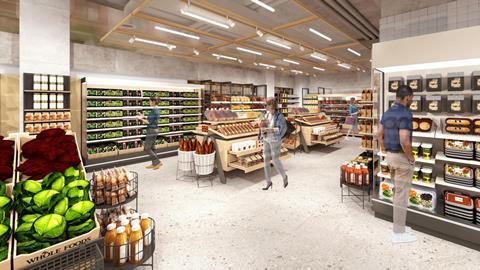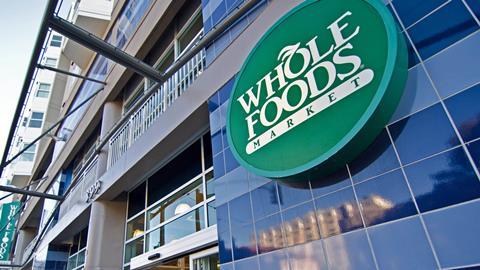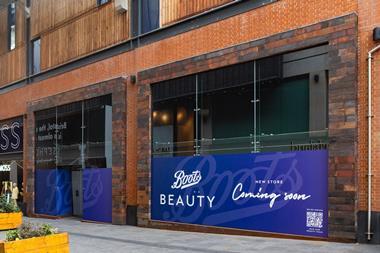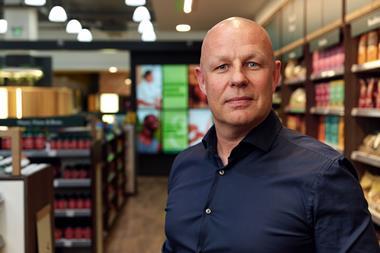Whole Foods Market says closing two UK stores and DC paves the way for growth
Whole Foods Market is closing two stores and its distribution centre. Having suffered a 3% drop in sales in its last published accounts (for 2022) and a 4% fall the year before, as well as ballooning operating losses, it doesn’t look rosy for the Amazon-owned supermarket.
But the closures of its Richmond and Fulham stores and Dartford DC are “paving the way for our growth and expansion in the UK” a spokeswoman said last week. A new store in King’s Road, Chelsea, is due to open next year.
So what can we expect from its expansion plan? And where do Amazon’s priorities lie?
Whole Foods says the coming Chelsea store is one of 75 in the pipeline across the UK, US and Canada. The company has a heftier medium-term plan to develop 100 stores at a rate of “30 or more” a year.
But it is almost certain most will be in the US. Finding suitable locations in the UK will be difficult, says PwC senior retail advisor Kien Tan. “Of all the places you can imagine putting one – you’ve already got a H&B and M&S and a Waitrose. So what are you going to do different?” he says. “At least Amazon Fresh has got a gimmick.”
Read more: Dozens of women-led brands in the spotlight at Whole Foods Market
Whole Foods entered the UK market in 2004 by acquiring seven Fresh & Wild stores, with executives hinting at plans to open as many as 40 locations. It has launched only a handful of stores since, with its only sites outside London – in Bristol, Cheltenham and Glasgow – long since shuttered. And it has made heavy losses every year. Amazon, which bought it in 2017 in a £13bn deal, has also struggled to make it a success.
“Whole Foods is a pretty mediocre grocer,” says Neil Saunders, MD and retail analyst at GlobalData Retail. “In the US this is kind of fine because, being blunt, most other grocery stores are even more mediocre. So Whole Foods wins – especially in areas like freshness and having food that’s healthy. But in the UK, Whole Foods is up against players like Waitrose, which despite its recent issues, remains a quality supermarket. And then there’s M&S, which is one of the best food retailers in the world.”
“Whole Foods is looking to open some more UK stores, so it’s still playing in the market; but it’s hard to see how they will generate significant traction other than among a fairly niche audience.”

Organic differentiation isn’t working
In the UK Whole Foods is struggling to maintain a USP.
“When it first arrived, the healthier, Planet Organic-style, organic stuff was more of a novelty,” he says. “Now everybody does it. All the big supermarkets have a range now. They’re no longer as much unique as there was.Arguably they’re being nipped at the heels too by Holland & Barrett – which provides much of the same in more convenient locations.”
Whole Foods is also doing its own work to erode any USP. Earlier this month, in a bid to win back customers, it started stocking 141 “staple” major UK brands – though each had passed strict quality standards, it said.
Read more: Whole Foods Market turns to UK ‘staples’ in bid to win back shoppers
The format of any new UK stores is as yet unknown. This month Whole Foods unveiled a new smaller store format called Whole Foods Market Daily Shop (pictured), a “quick-shop store format” designed to give “customers in urban neighbourhoods a quick, convenient shopping experience”, it said.
But creating a retail destination is even harder in a smaller space in an urban neighbourhood, says Tan. “You can do more in the King’s Road than in a random market town,” he says. “Planet Organic’s present struggle should serve as a warning.
And the format is close to that currently being pursued by Amazon Fresh, which continues to launch stores, albeit slowly. It is unlikely Amazon would want to compete with itself in the same street.
“The problem with Amazon is that they’re trying to do too much,” argues former Amazon executive Brittain Ladd, and they should “stop confusing customers”.
“I strongly advise Amazon to close all Whole Foods stores and drop the brand entirely in Europe. Whole Foods will never be competitive in the UK.”
Saunders says that “it is almost as if Amazon is afraid to disrupt the legacy of Whole Foods”, but “it should not be”.
Is that likely? Ultimately, Tan says, Amazon is “still in experimentation mode”.
But he cautions: “At least they’re trying,” Tan says. “And they’re taking tough decisions”.
“The closures tell me they’re willing to make decisions that in the old days Amazon may not have done. They’re being more like hard-nosed retailers.”

























No comments yet